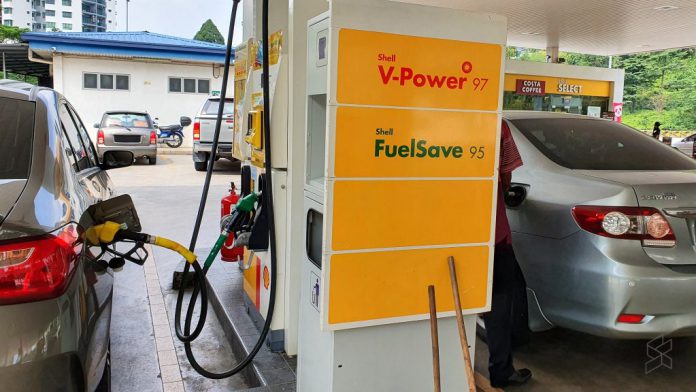KUALA LUMPUR, March 14 — The government may not be cutting off the fuel subsidy as yet, given the current economic condition, said an academic.
Universiti Kuala Lumpur (UniKL) Business School economic analyst, associate professor Dr Aimi Zulhazmi Abdul Rashid said the domestic economy is still reeling from the pandemic and the aftermath of the major flood last December.
He stressed that the domestic economy’s recovery is crucial to achieving the targeted 2022 economic growth of around 6.0 per cent through various measures, including the transition to the endemic stage as the country prepares to reopen the international borders on April 1.
“The government will try to resist the pressure of reducing or removing the subsidy, not only for fuel but also liquefied petroleum gas, cooking oil and food items.
“From the political perspective, removal of subsidies will be unpopular with the people and may be used by the other side of the political divide to steer the people against the current government,” he told Bernama.
On inflation, Aimi said a domestic inflation rate hike is imminent in line with the rise of the rate globally due to the economic reopening in the second quarter of 2021, amidst global supply chain disruptions due to COVID-19, pushing commodity prices upward.
He added that Russia’s attack on Ukraine had worsened the erratic global economy, boosting almost all commodities to new heights.
“Should the subsidy of fuel be removed or reduced by the government, it will impact the prices in whole segments of the supply chain.
“Note that even though the fuel price has been maintained for more than a year, the prices of goods continues to increase, so imagine what would happen to the prices of goods should the fuel price be adjusted,” said Aimi.
Meanwhile, MIDF Research expects inflationary pressure to stay stable despite the volatile food prices.
In January 2022, headline inflation moderated to a four-month low of 2.3 per cent year-on-year, following a deceleration in non-food inflation to a 10-month low of 1.7 per cent.
“The slowdown in non-food inflation is mainly due to receding low-base effects of fuel inflation. If the government maintains the capped fuel prices, we should expect continuous moderation in the energy inflation for this year,” it said in a note today.
On the flip side, MIDF Research noted that the skyrocketing commodity prices triggered by the Ukraine-Russia conflict would have direct and indirect impacts on global food inflation as well as Malaysia’s food prices amid heavy dependency on imported food products.
“However, we believe the tapering fuel inflation will outweigh the rising food inflation, thus overall inflationary pressure should stay within 2.0-3.0 per cent in 2022,” said MIDF Research.
REVIVAL OF WEEKLY AUTOMATIC FUEL PRICING MECHANISM
Aimi said the current government may not want to make another decision in this matter until the political situation is more stable.
He pointed out that the government should work harder on the enforcement side since there has been a quite significant leak in the fuel subsidy money.
“There are two major problems, namely the smuggling of fuel to neighbouring countries and the illegal sale of diesel from petrol stations to factories that should buy at commercial prices and not subsidised prices.
“The government must ensure that there is no widespread subsidy leakage, where diesel subsidies given through petrol stations for retail sale are secretly sold to commercial factories.
“Heavier penalties must be imposed on traders who cooperate with the syndicates, such as revocation of licenses and bankruptcy orders to both suppliers and buyers, because it takes two to tango,” he added.
















